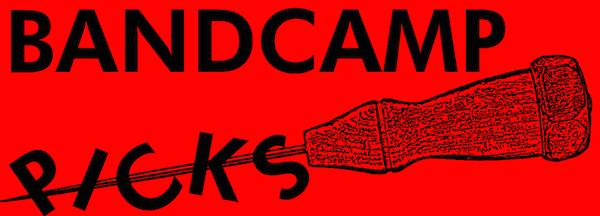
Black metal, as espoused by its "second wave" adherents in Norway, was at its core a reactionary movement which attempted to move metal backwards, nor forwards. But by creating guidelines as to what the genre should and shouldn't be, the bands in question quickly found themselves forced to abandon it in order to grow as musicians (and, one assumes, to stave off boredom). It's a cycle that repeats itself with every subsequent generation that picks up the genre's spiked mantle.
To whit: the sophomore release from Athens-based Nox Formulae. Through stellar songcraft and some catchy riffs, Drakon Darshan Satan succeeds in being more than just another black metal album, whilst adhering to the genre's basic demands for speed and rawness. But by experimenting with techno beats - as Ulver and Dødheimsgard did before them - the band hint at the stifling nature of "staying true", and a break from the genre seems inevitable. [$7]
Oslo's Okkultokrati, ironically, seem uninterested in adhering to the ruleset created by their countrymen. With a production that has as much in common with Eighties punk as Nineties black metal, La Ilden Lyse slips arena rock moments into its mix of post punk, proto-thrash and Scandinavian crust. By the time you get to the Motorhead-inspired single "Kiss of Death", it becomes clear that the band is having too much fun to be grim or kvlt. [$7.99]
Formed by members of Void Omnia and Lord Mantis, Devil With No Name is the rare side project that finds a sound that's distinct from the contributors' main bands. Switching back and forth between blastbeats and a mid-paced strut, their eponymous four song debut still embodies all the arrogance and menace that characterized black metal in the Nineties, though avoiding outright imitation. [$4]
Icelandic black metal has been characterized in recent years by discordance and avant garde weirdness, but Árstíðir lífsins does very little that's weird or contemporary. At its fastest, the ponderously (if appropriately) titled Saga á tveim tungum II: Eigi fjǫll né firðir replicates the bleak majesty of the dearly missed Dawn. But the album finds its own voice when it slows things down, employing extended folk sections, spoken word passages, and quasi-tribal drumming to create an album that lives up to the Eddic poetry that inspired it. [€1]
